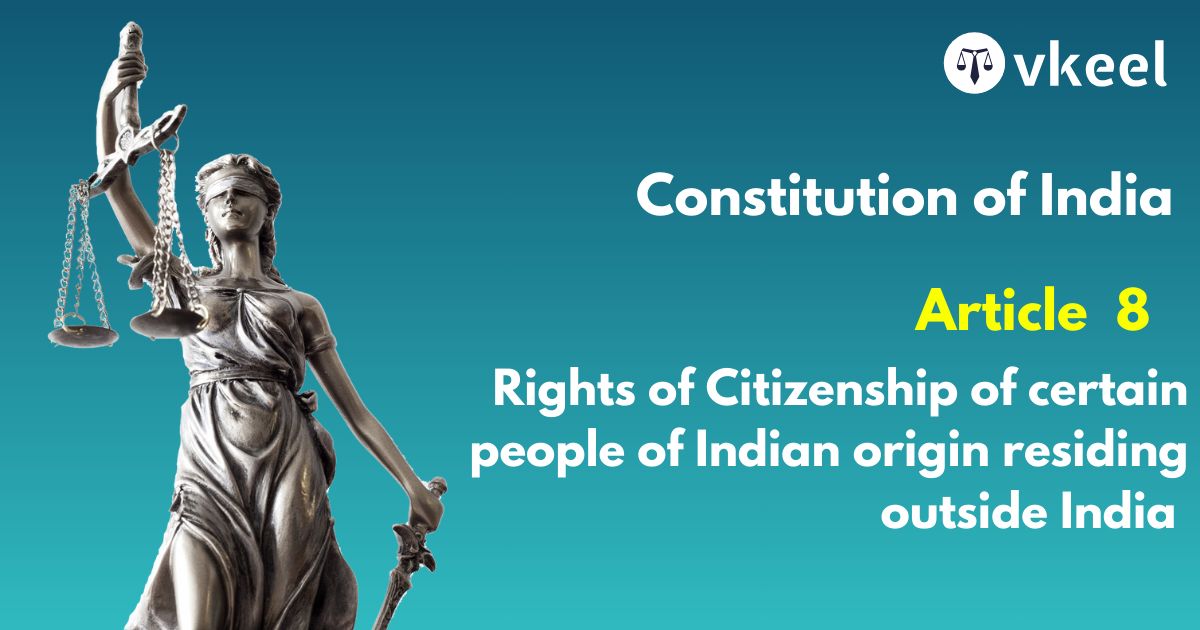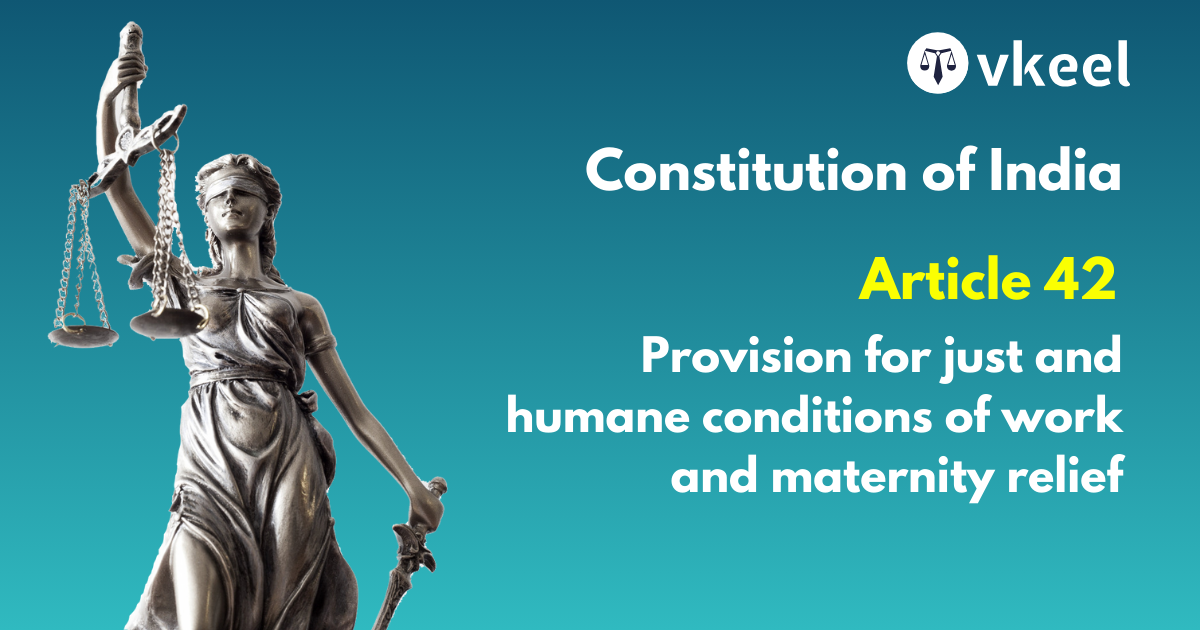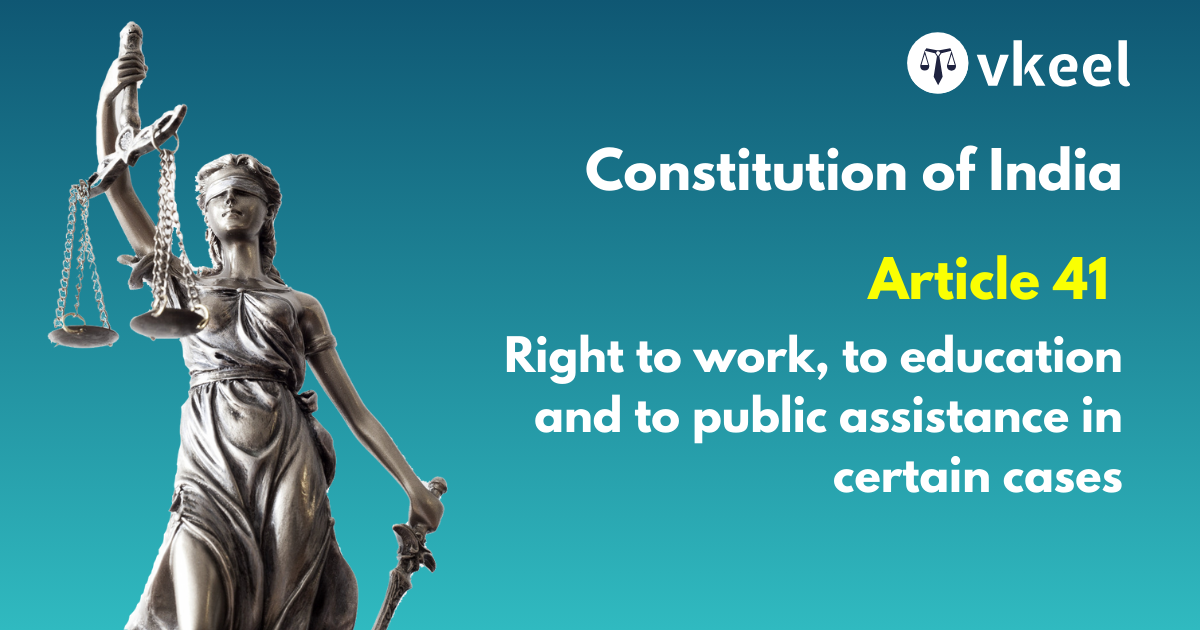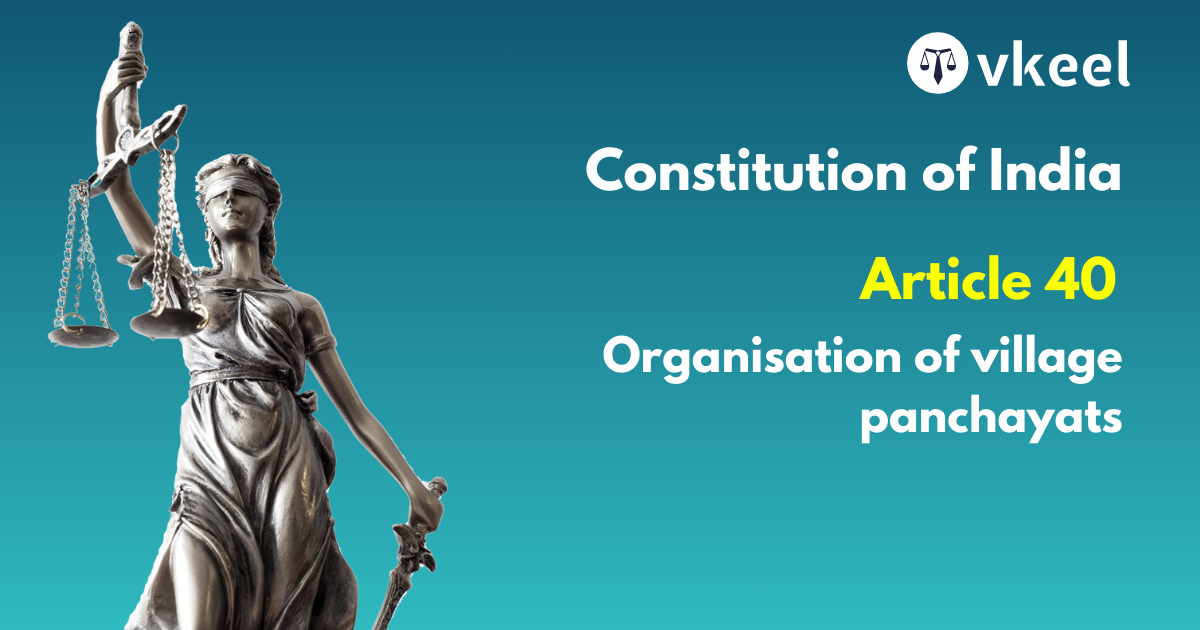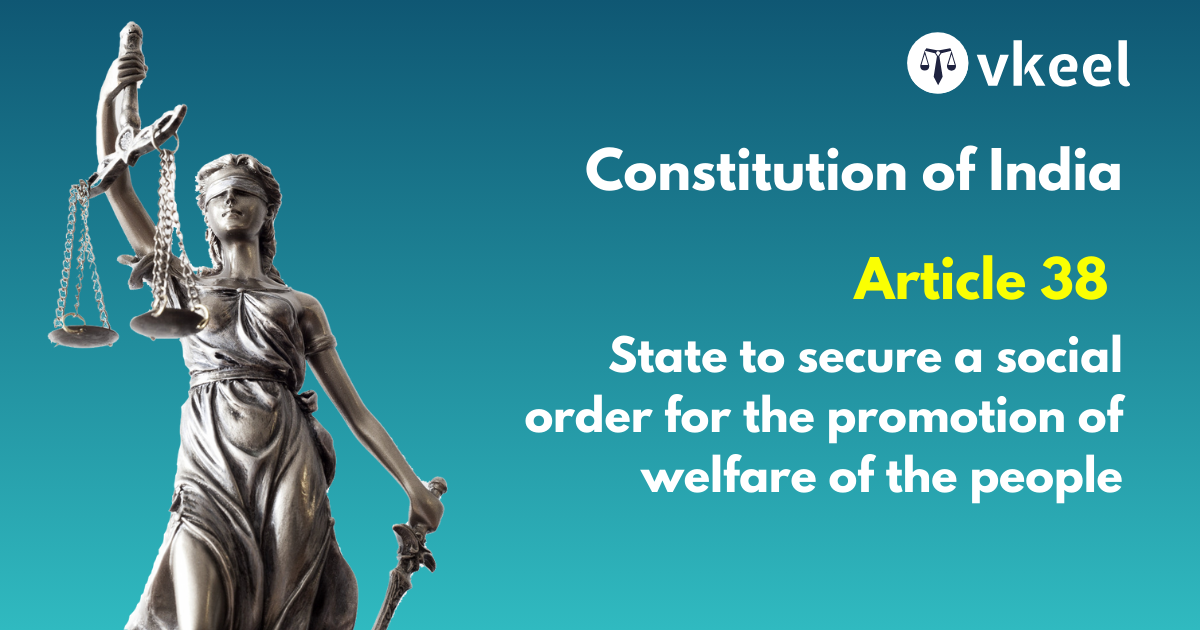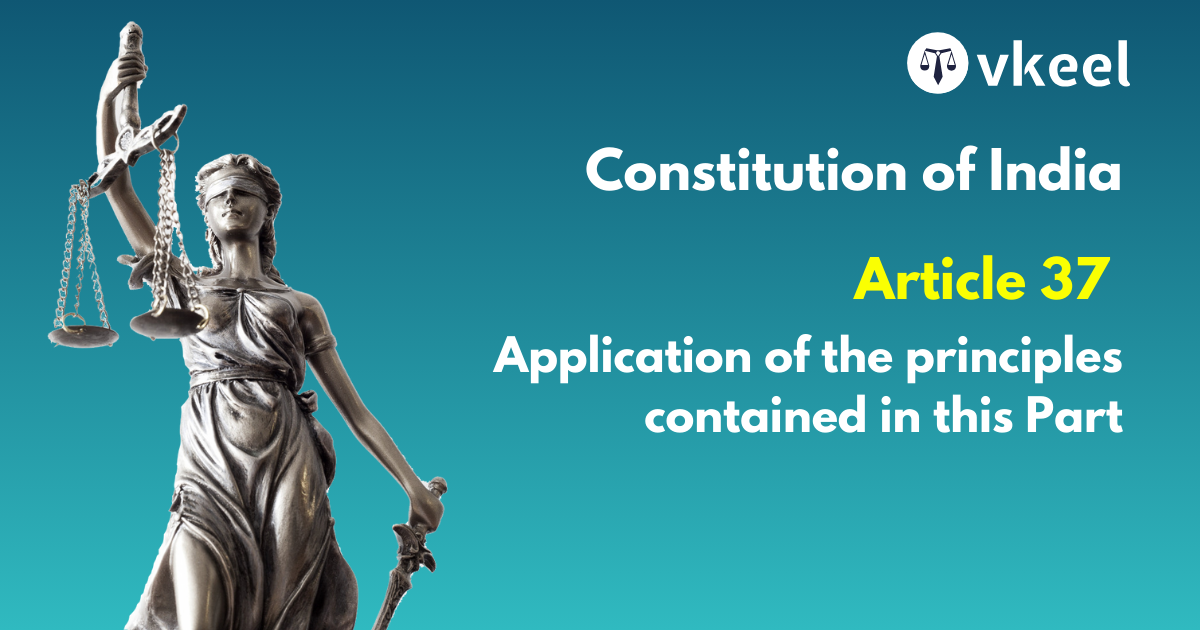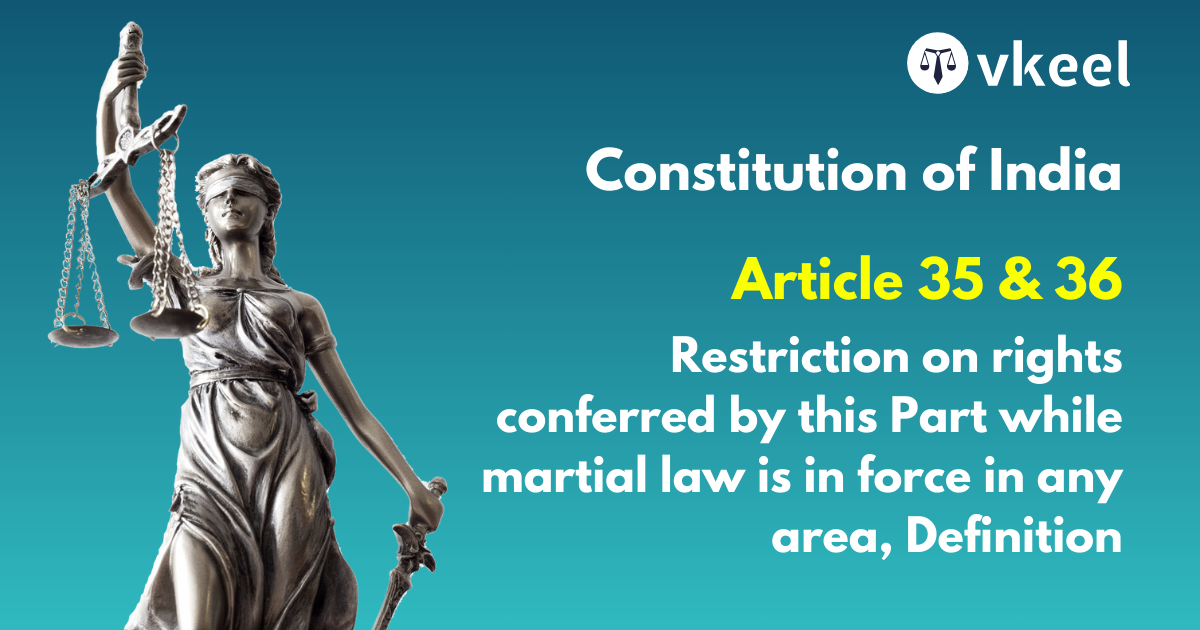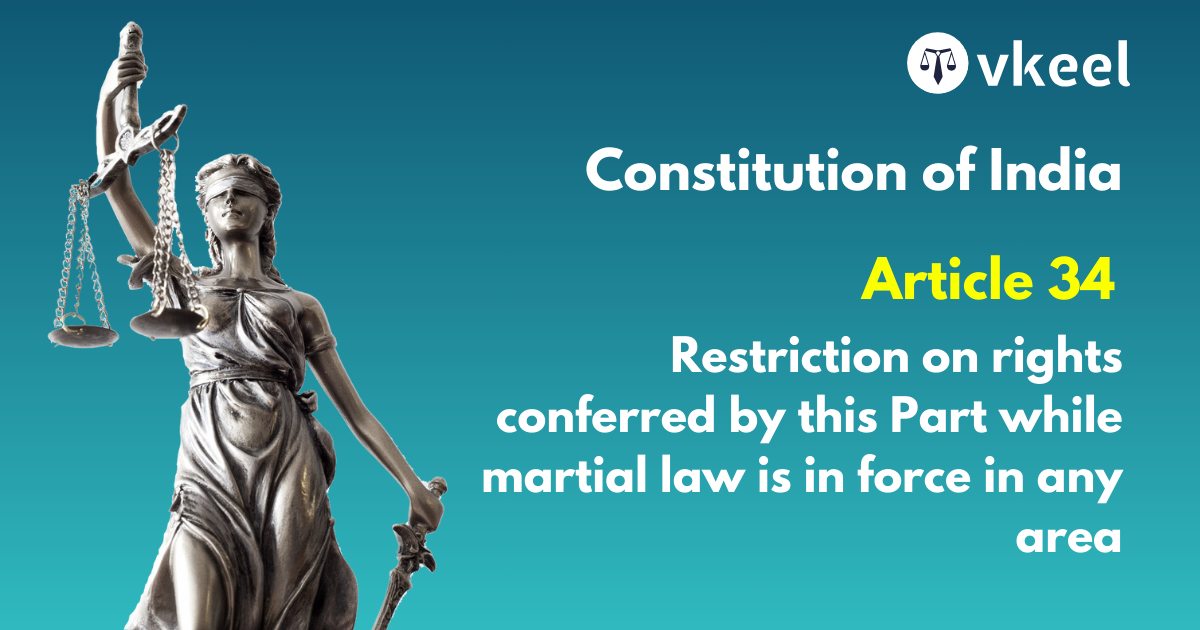Article 8 Rights of Citizenship of certain persons of Indian Origin residing outside India
By Vanshika Saini
Table of Contents
Introduction
Dr. Ambedkar of the Drafting Committee moved Article 5B, concerns the provisions related to Citizenship of Indians residing outside India. After the integrated amendment by the Ministry of External Affairs of India and its adoption by the constituent assembly Article 5B was adopted and incorporated as Article 8 in the Constitution of India.
Previously it was included in the draft constitution after being revised by the drafting committee and later was adopted in the final outlook of the constitution adopted on 26th November, 1949. The particular article has retained its original form and no amendment has been observed in the same.
Article 8 : Constitution Of India
Rights of citizenship of certain persons of Indian origin residing
outside India.—
Notwithstanding anything in article 5, any person who or either of whose parents or any of whose grand-parents was born in India as defined in the Government of India Act, 1935 (as originally enacted), and who is ordinarily residing in any country outside India as so defined shall be deemed to be a citizen of India if he has been registered as a citizen of India by the diplomatic or consular representative of India in the country where he is for the time being residing on an application made by him therefor to such diplomatic or consular representative, whether before or after the commencement of this Constitution, in the form and manner prescribed by the Government of the Dominion of India or the Government of India.
Analysis of Article 8
Article 8 opens the gates of Indian Citizenship for broader masses, especially for people who have no domicile in India. The people may be residing outside but actually have their parents or grandparents residing in India.
To acquire the domicile in India one need to submit an application in embassy or consulate, done before or after the commencement of the constitution both being equally accepted. Thus, Either parents born in ‘undivided India’ or though a ‘ diplomatic or a consular representative’ both can grant an individual Citizenship in India.
The key aspect highlighted in Article 8 accounts to the phrase highlighted ‘Notwithstanding anything in Article 5’ Therefore Article 8 overshadows Article 5 which is pre conditioned to register oneself before the commencement of the Constitution, while on the contrary Article 8 eliminates this condition.
Article 8 offers Citizenship not only at the commencement or through the given application but also under any discretion taken by the Parliament under the Article 11 of the Indian Constitution. Hence, Article 5,6 and 7 provide citizenship to specific categories of people, Article 8 secures right of those future generation of people residing abroad.
Conclusion
Article 8 proves to be a road interconnecting people to their homeland, promoting inclusivity through engagement with human emotions and practicality , in a country like India with diverse culture and variations the particular article claims to set an example of India as a flexible country adapting and catering, not only the huma emotions but also paving a way to foster easy and progressive solutions.
Disclaimer:
The information provided in the article is for general informational purposes only, and is not intended to constitute legal advice or to be relied upon as a substitute for legal advice. Furthermore, any information contained in the article is not guaranteed to be current, complete or accurate. If you require legal advice or representation, you should contact an attorney or law firm directly. We are not responsible for any damages resulting from any reliance on the content of this website.

